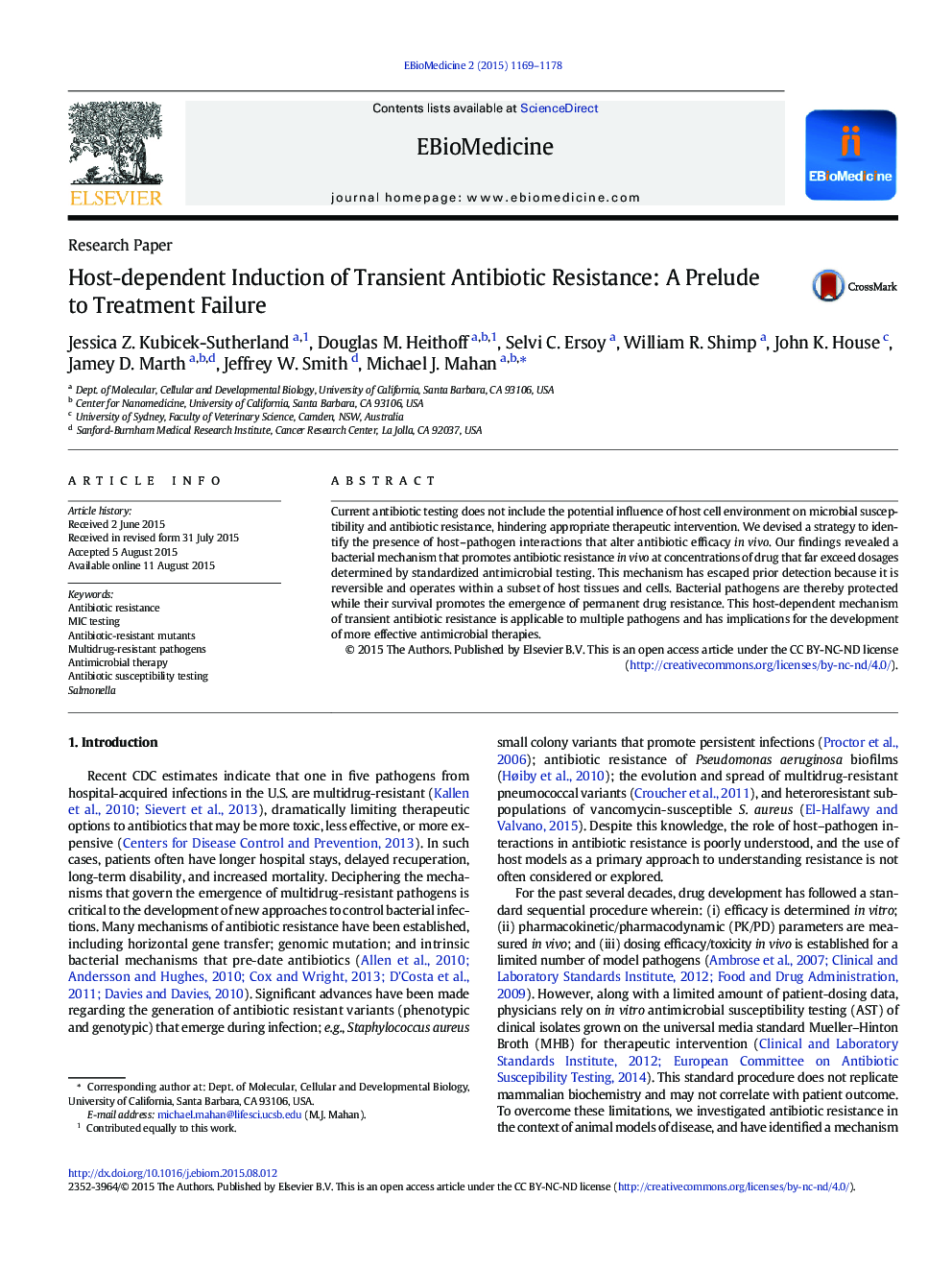| کد مقاله | کد نشریه | سال انتشار | مقاله انگلیسی | نسخه تمام متن |
|---|---|---|---|---|
| 2120914 | 1085764 | 2015 | 10 صفحه PDF | دانلود رایگان |
• Standard MIC testing does not consider the influence of the host milieu, potentially hindering therapeutic intervention.
• Salmonella induce polymyxin resistance during infection at levels of drug that far exceed dosages determined by MIC testing.
• Polymyxin treatment failed to control Salmonella infection and promotes the emergence of drug-resistant mutants.Physicians rely on laboratory antimicrobial susceptibility testing of clinical isolates to identify a suitable antibiotic for therapy. Although the recommended antibiotics clear most bacterial infections, some patients fail to respond and require prolonged therapy, higher dosing or different antibiotics. Why does this occur and what are the possible implications? By studying antibiotic resistance in the context of infection, we identified a host-dependent mechanism that promotes antibiotic resistance at concentrations of drug that far exceed dosages determined by standardized antimicrobial testing. These findings question current antibiotic testing methods that have guided physician treatment practices and drug development for the last several decades.
Current antibiotic testing does not include the potential influence of host cell environment on microbial susceptibility and antibiotic resistance, hindering appropriate therapeutic intervention. We devised a strategy to identify the presence of host–pathogen interactions that alter antibiotic efficacy in vivo. Our findings revealed a bacterial mechanism that promotes antibiotic resistance in vivo at concentrations of drug that far exceed dosages determined by standardized antimicrobial testing. This mechanism has escaped prior detection because it is reversible and operates within a subset of host tissues and cells. Bacterial pathogens are thereby protected while their survival promotes the emergence of permanent drug resistance. This host-dependent mechanism of transient antibiotic resistance is applicable to multiple pathogens and has implications for the development of more effective antimicrobial therapies.
Figure optionsDownload as PowerPoint slide
Journal: EBioMedicine - Volume 2, Issue 9, September 2015, Pages 1169–1178
